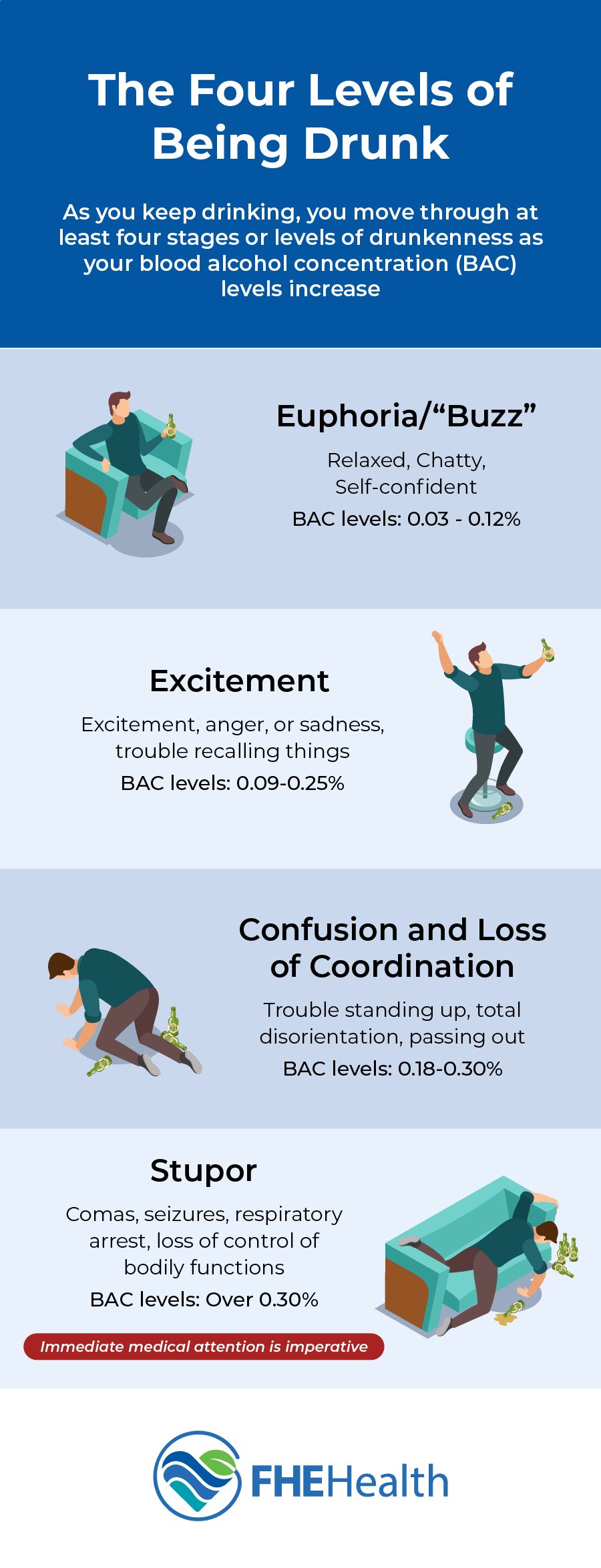
|
|
When you think of dangerous drugs, you don’t first think of alcohol, do you? Most people are more likely to think of crack or heroin, or maybe even prescription painkillers. Because of its widespread social acceptance in this country, drinking—even getting drunk—often gets written off as a largely harmless form of social recreation. But is it really? Could it be that we don’t always realize just how dangerous the effects of alcohol are on the human brain and body?
The Health Dangers of Alcohol
The answer appears to be “yes,” on the basis of new findings into the health dangers of alcohol. It would seem, in fact, that the more scientists learn about alcohol and its effects, the less enthusiastic they are about even occasional drinking. For example, an August 2018 study at the University of Washington School of Medicine concluded there is no safe level of alcohol consumption. The researchers said “the health risks associated with alcohol are massive,” and pointed to the fact that in 2016 more than three million deaths globally were attributed to alcohol use.
How Alcohol Affects the Brain and Body
Why are alcohol’s health risks so massive? Alcohol affects the brain and every part of the body on a cellular level; and, in addition to being the most commonly abused drug, alcohol is probably the most dangerous drug.
Alcohol intoxication impacts the brain in many ways. We all know that the brain is the main source of the body’s functions. Imagine putting your brain in a jar filled with alcohol and shaking it up— it’s not a pretty picture. Yet that’s what slowly happens, to a certain extent, when you drink and don’t stop drinking alcohol. Alcohol seeps into the brain, affecting the different parts of your body’s motherboard as you drink more and more.
The Four Levels of Being Drunk
As an illustration, consider what happens when you get drunk. As you keep drinking, you move through at least four stages or levels of drunkenness as your blood alcohol concentration (BAC) levels increase:
- Euphoria/”Buzz” – This stage of intoxication ensues once a person’s BAC levels are within the range of .03-.12 percent. A BAC level within this range means the person has consumed more than one beer in an hour: For men, this typically means two to three beers in an hour and for women one to two beers. A person in this initial, feel-good stage may feel more relaxed, chatty, and self-confident. They may experience a mild, euphoric buzz and even get a bit tipsy, depending on their metabolism of alcohol and factors like age, amount of food eaten, body size and weight, and other drugs taken.
- Excitement – At this next level of intoxication when BAC is 0.09-0.25 percent, a person has crossed the threshold of being in control of their mental and emotional faculties: They may dramatically overreact with excitement, anger, or sadness and have trouble recalling things. Meanwhile, they begin to lose coordination and balance and can have blurry vision and/or impaired judgment.
- Confusion and Loss of Coordination – By the time a person has reached this advanced stage of drunkenness, their BAC is at dangerously high levels: within the range of 0.18-0.30 percent. This means you’re drinking roughly five drinks per hour if you’re a man and four drinks per hour if you’re a woman— and, are at imminent risk of alcohol poisoning and even death. If you’ve reached this stage of drunkenness, it means that the amount of alcohol you have consumed is way too much alcohol to metabolize in one sitting, as evidenced by the fact that your brain and body begin to shut down at this juncture. You may have trouble standing up, not to mention walking. You may pass out or fade in and out of consciousness. Total disorientation sets in and reaction times in your body have completely slowed down.. You may stop feeling pain, becoming more vulnerable to injuries. Bladder function and heart rate can fail.
- Stupor – With a BAC of .30 and higher, you are well within the realm of a fatal alcohol poisoning. Some of the symptoms and complications that can occur in this final, often deadly stage of drunkenness: loss of control of bodily functions, comas, seizures, and respiratory arrest. By the time you’ve reached this stage, your gag reflex won’t work, so there is a very real prospect of choking on your own vomit and dying.
Immediate medical attention is imperative in the lead-up to this last stage of drunkenness, in order to prevent death from alcohol poisoning and/or other fatal symptoms. Indeed, at a BAC of .45 or above, you are probably going to die from alcohol poisoning. These facts about the stages of drunkenness are therefore a sobering antidote to the notion that “getting drunk” is a harmless form of social entertainment.
The Four Stages of How Drinking Affects Your Brain
These four stages of drunkenness roughly overlap with corresponding changes in the brain and particular regions of the brain. These neurological stages are not any less scary because the human can’t see them. They are as follows:
- Stage 1 … The Cerebral Cortex: The cerebral cortex processes information from your senses and thoughts and initiates the majority of voluntary muscle movements; it also has some control over lower-order brain centers. By affecting the cerebral cortex, alcohol impairs thought processes and leads to poor judgment. It can cause depression or inhibition, which leads to talkativeness and self-confidence. When that happens, alcohol has seeped into the cerebral cortex. It also blunts the senses. As you drink more, these effects become more apparent.
- Stage 2 … The Cerebellum: The cerebellum coordinates muscle movement. The cerebral cortex initiates movement by sending messages through the medulla and spinal cord to the muscles. As these signals pass through the medulla, they are influenced by nerve impulses from the cerebellum. These nerve impulses control fine movements, which include those for balance and basic things like walking.
- Stage 3 … Hypothalamus and Pituitary Gland: These glands control many automatic body functions, such as hormonal release. Alcohol affects this part of the brain by depressing nerve centers in the hypothalamus that control sexual arousal— thus making you more aroused but less able to perform. Alcohol affects the brain by also inhibiting pituitary secretion, which affects urine excretion. This explains why you have to pee so much when you drink; your kidneys can’t absorb the water.
- Stage 4 … The Medulla: Slowly but surely, you have now drunk enough to get alcohol poisoning and your brain is totally marinated in alcohol. The medulla controls your automatic body functions: important things such as your heart rate, body temperature, and breathing. When alcohol reaches the medulla, a person will start to feel sleepy and can begin to lose consciousness. Increased drinking can be fatal because it shuts down the medulla entirely.
All of this to say, if getting drunk sounds like a form of harmless fun, think again. In some cases, getting drunk can be a death wish. That’s because alcohol is the most dangerous drug out there. Anyone who drinks heavily should know the health risks ahead of time— as well as how to get help for an alcohol problem. Learn more about our alcohol treatment program today.







